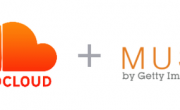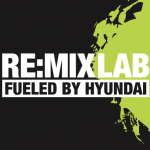By Jason Epstein
You’ve heard of litigation against file-sharing sites for hosting music, but what about sites that host lyrics? Lyric databases have been part of the web for quite a while. Compared to sites that require their servers to store and transfer vast amounts of data, lyrics are relatively easy to host – After all, it’s only text they’re displaying. But it can be argued that they still facilitate piracy, as they rely on the display of copyrighted content. The sites also make their money from advertising, which could instead be going to the songwriters and publishers instead.
There are tons of lyrics sites out there like Absolute Lyrics, Sing365, PLyrics, A-Z Lyrics, and Metro Lyrics, just to name a few. How many of them are licensing their content? It’s a question they may want to be asking themselves (and their lawyers) sooner than later, as music publishers have been going after lyric-hosting sites more and more aggressively since around 2005 with an especially big payoff that recently blasted LiveUniverse.com and its owner Brad Greenspan with a $6.6 million default judgment.
How will lyrics sites survive? Well, it involves a huge pay cut. All sites based in the U.S. that become licensed will have to pay 50% of their revenue to music publishers and songwriters, and just as with other forms of media consumption, the artists and publishers who get the most hits on particular songs will receive the most revenue.
It may be the beginning of the end of lyric-hosting sites as we know them, but as with everything on the internet, it will evolve. A great example is Rap Genius, in which rap fan/millionaire Andreessen Horowitz just invested $15M. In addition to hosting lyrics, this will act like a rap dictionary, with users being able to make annotations to the text, providing explanations, interpretations, and other interesting facts. It’s unclear whether any of the publishers or songwriters of these lyrics will receive any of the $15M that Horowitz is plunking down on the venture.
Rap Genius, which recently demoed at the NY Music Tech Meetup, claims that due to their annotations, their use of lyrics qualifies as “fair use”, an exception to exclusive rights granted by copyright law to authors of creative work, and as such will not pay out royalties on it. This seems like something that could be open to interpretation in a legal context and could take additional litigation for Rap Genius to part with any of this seed money or the site’s subsequent revenue.
In addition to hip-hop lyrics, the founder of Rap Genius, Mahbod Moghadam, is also hoping to use Rap Genius’ annotation technology to annotate everything on the web including poetry, the Bible, political speeches, academic papers, and other cultural texts. It’s interesting and exciting how one type of technology that touches upon one type of industry has the ability to merge with others like streams that connect to rivers and then flow into a great big ocean of crowd-sourced, information-rich, content. And so, we have evolution.

















Comments are closed.